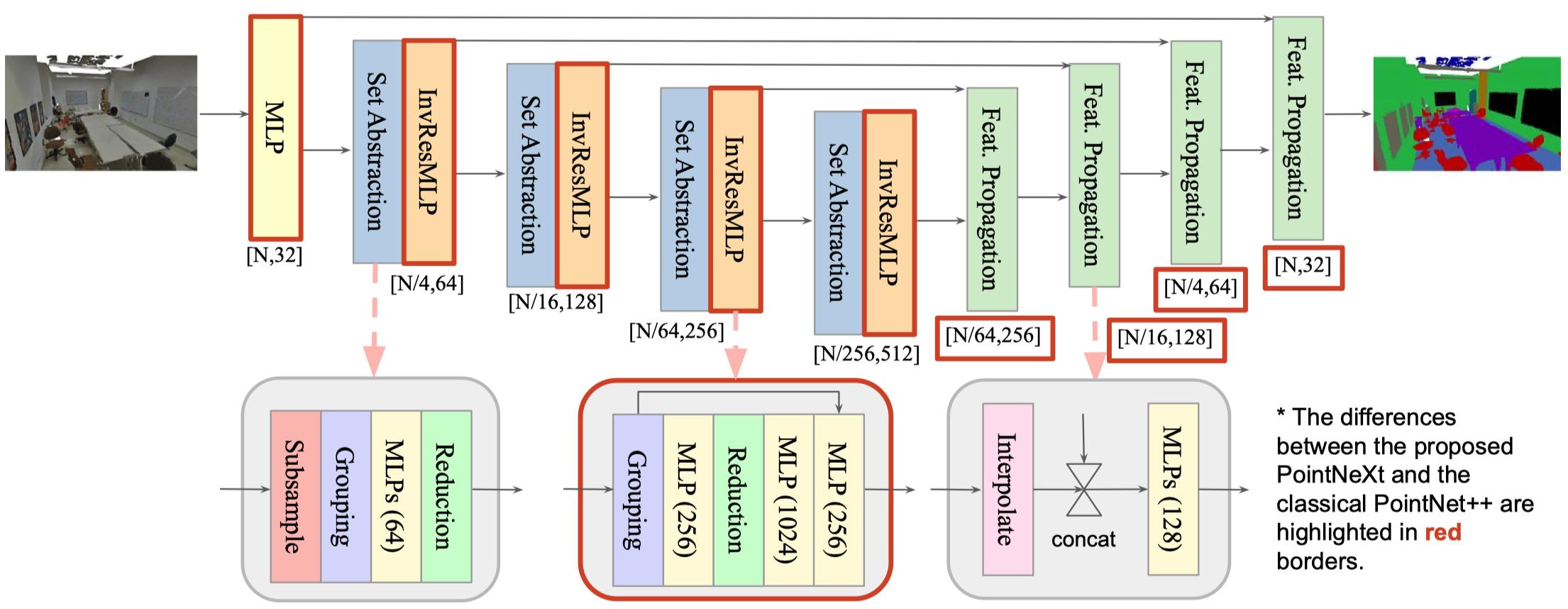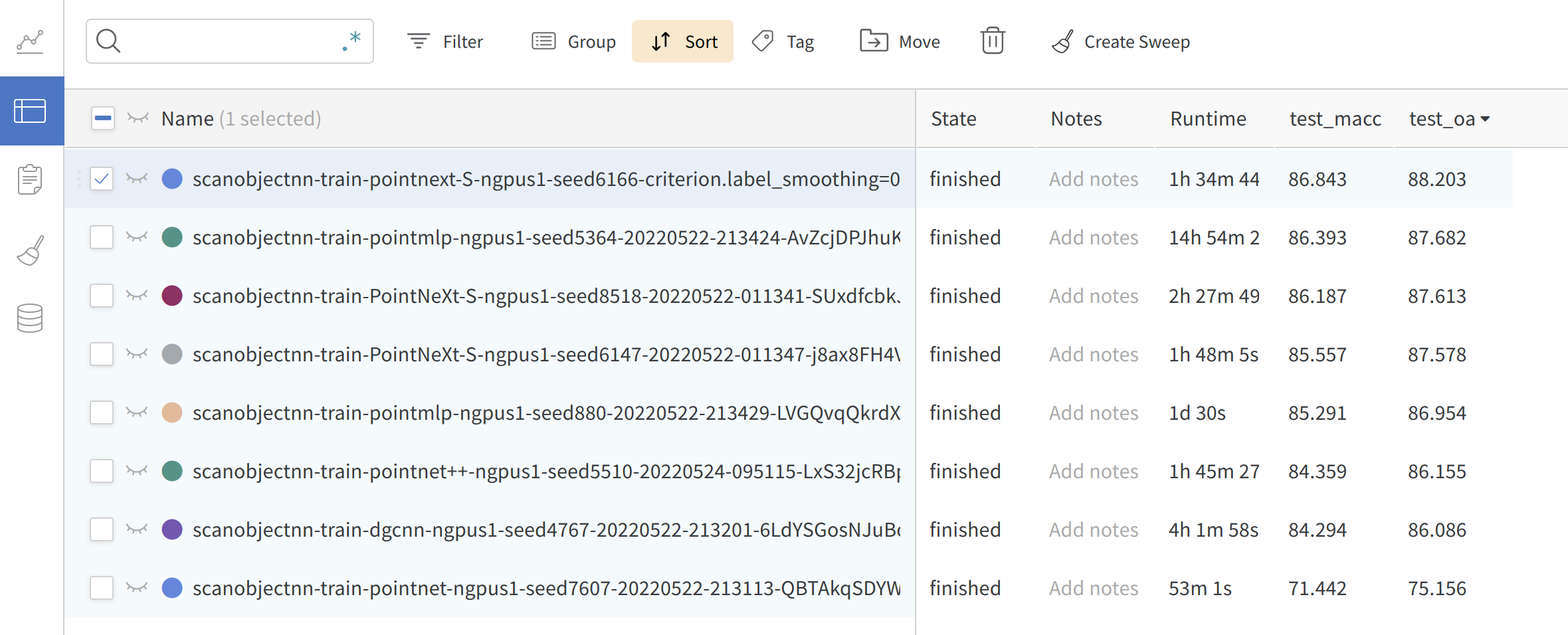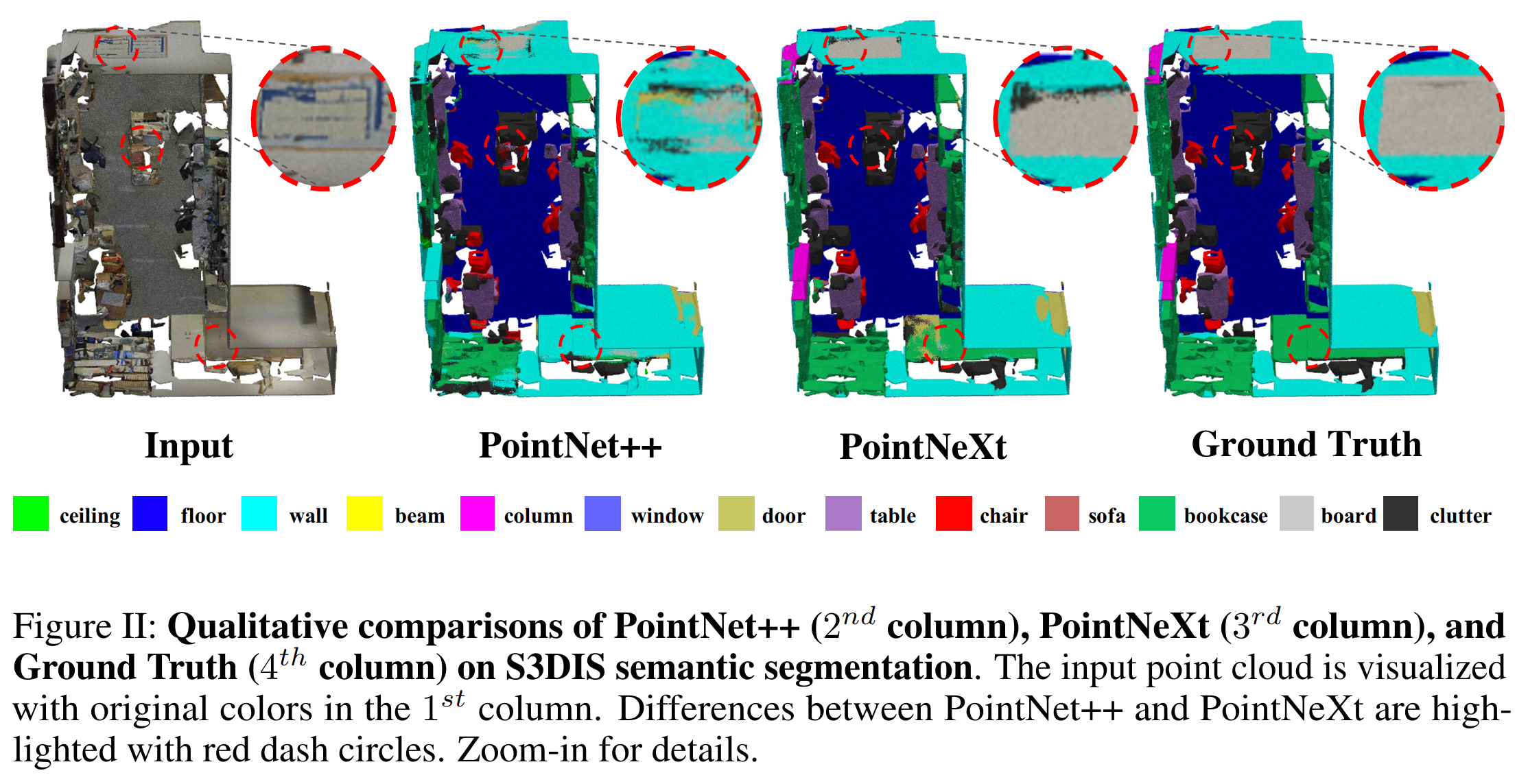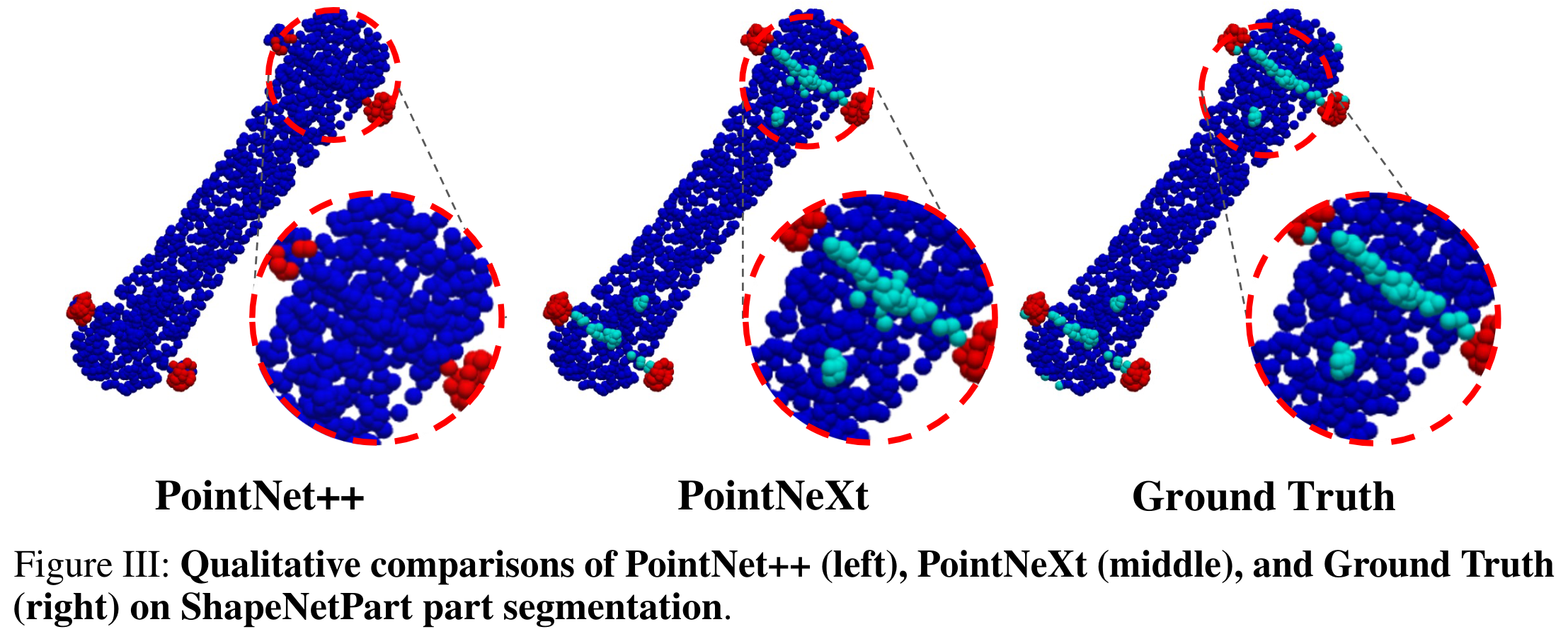Official PyTorch implementation for the following paper:
PointNeXt: Revisiting PointNet++ with Improved Training and Scaling Strategies
by Guocheng Qian, Yuchen Li, Houwen Peng, Jinjie Mai, Hasan Hammoud, Mohamed Elhoseiny, Bernard Ghanem
TL;DR: We propose improved training and model scaling strategies to boost PointNet++ to the state-of-the-art level. PointNet++ with the proposed model scaling is named as PointNeXt, the next version of PointNets.
- 💥 Sep, 2022: PointNeXt accepted by NeurIPS'22
- 📌 Houwen Peng is hiring research interns at Microsoft Research Asia. Contact: houwen.peng@microsoft.com
- 📌 Bernard Ghanem is hiring visiting students. Monthly salary is paid with free housing. Contact Guocheng if interested: guocheng.qian@kaust.edu.sa
- 💥 Jun, 2022: Code released
In the PointNeXt project, we propose a new and flexible codebase for point-based methods, namely OpenPoints. The biggest difference between OpenPoints and other libraries is that we focus more on reproducibility and fair benchmarking.
-
Extensibility: supports many representative networks for point cloud understanding, such as PointNet, DGCNN, DeepGCN, PointNet++, ASSANet, PointMLP, and our PointNeXt. More networks can be built easily based on our framework since OpenPoints support a wide range of basic operations including graph convolutions, self-attention, farthest point sampling, ball query, e.t.c.
-
Reproducibility: all implemented models are trained on various tasks at least three times. Mean±std is provided in the PointNeXt paper. Pretrained models and logs are available.
-
Fair Benchmarking: in PointNeXt, we find a large part of performance gain is due to the training strategies. In OpenPoints, all models are trained with the improved training strategies and all achieve much higher accuracy than the original reported value.
-
Ease of Use: Build model, optimizer, scheduler, loss function, and data loader easily from cfg. Train and validate different models on various tasks by simply changing the
cfg\*\*.yamlfile.model = build_model_from_cfg(cfg.model) criterion = build_criterion_from_cfg(cfg.criterion_args)Here is an example of
pointnet.yaml(model configuration for PointNet model):model: NAME: BaseCls encoder_args: NAME: PointNetEncoder in_channels: 4 cls_args: NAME: ClsHead num_classes: 15 in_channels: 1024 mlps: [512,256] norm_args: norm: 'bn1d'
-
Online logging: Support wandb for checking your results anytime anywhere. Just set
wandb.use_wandb=Truein your command.
We provide a simple bash file to install the environment:
git clone --recurse-submodules git@github.com:guochengqian/PointNeXt.git
cd PointNeXt
source update.sh
source install.sh
Cuda-11.3 is required. Modify the install.sh if a different cuda version is used. See Install for detail.
Check our online documentation for detailed instructions.
A short instruction: all experiments follow the simple rule to train and test:
CUDA_VISIBLE_DEVICES=$GPUs python examples/$task_folder/main.py --cfg $cfg $kwargs
- $GPUs is the list of GPUs to use, for most experiments (ScanObjectNN, ModelNet40, S3DIS), we only use 1 A100 (GPUs=0)
- $task_folder is the folder name of the experiment. For example, for s3dis segmentation, $task_folder=s3dis
- $cfg is the path to cfg, for example, s3dis segmentation, $cfg=cfgs/s3dis/pointnext-s.yaml
- $kwargs are the other keyword arguments to use. For example, testing in S3DIS area 5, $kwargs should be
mode=test, --pretrained_path $pretrained_path.
see Model Zoo.
More examples are available in the paper.
This library is inspired by PyTorch-image-models and mmcv.
If you find PointNeXt or the OpenPoints codebase useful, please cite:
@InProceedings{qian2022pointnext,
title = {PointNeXt: Revisiting PointNet++ with Improved Training and Scaling Strategies},
author = {Qian, Guocheng and Li, Yuchen and Peng, Houwen and Mai, Jinjie and Hammoud, Hasan and Elhoseiny, Mohamed and Ghanem, Bernard},
booktitle=Advances in Neural Information Processing Systems (NeurIPS),
year = {2022},
}







